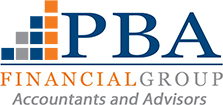What business needs to know about the skills and technology boosts
Proposed measures for a bonus 20 per cent tax deduction to incentivise spending on training and digital uptake are back on track.

The announcement by the previous government of two temporary tax incentives to support small businesses in the budget on 29 March 2022 was received with rapture. What was not to like? A bonus 20 per cent deduction for eligible expenditure on skills and training and investment in digital technology.
As with all budget announcements, we typically anticipate a delay in being across the detail of announced measures, as this rarely accompanies the announcement.
However, delays with these measures were particularly pronounced due to the timing of the federal election and the resulting change in government. For more than two months, stakeholders have been wanting more certainty around these measures and seeking an indication from the new government whether it would honour the previous government’s proposed policy.
Thankfully, on 29 August 2022, the Treasury released for comment exposure draft legislation setting out the proposed small business skills and training boost (skills boost) and the small business technology investment boost (technology boost). This indicates a clear intention to progress these measures which are intended to make it easier for small businesses to train and upskill their employees and improve their digital and technology capacity.
The introduction of enabling bills into Parliament is expected this year but, given the consultation period runs until 19 September 2022 and the timing of the Spring sitting days, is not likely before the end of October 2022. The timing should allow a sufficient window for legal certainty and to incorporate new labels in the 2023 tax return forms for businesses to claim the boosts after June 2023.
What you need to know about the skills boost
The proposed skills boost will provide small businesses that have an aggregated annual turnover of less than $50 million with a bonus 20 per cent deduction for eligible expenditure on external training provided to their employees. New sections 328-445 and 328-450 are proposed to be inserted into the Income Tax (Transitional Provisions) Act 1997 (IT(TP)A).
Eligible skills and training expenditure
To be eligible for the bonus deduction, the expenditure must be:
- incurred on external training delivered to employees of the business by registered providers; and
- fully deductible under another provision of a taxation law, whether in, or wholly in, the income year in which the expenditure is incurred.
The requirement that the expenditure is deductible under the tax law means that if a business is GST-registered, the bonus deduction is generally calculated on the GST-exclusive amount of expenditure.
The scope of providers is limited by the requirement that the training provider must be registered in Australia with at least one of the following four government authorities at the time the expenditure is incurred:
- Australian Skills Quality Authority (within the meaning of the National Vocational Education and Training Regulator Act 2011);
- Tertiary Education Quality and Standards Agency (within the meaning of the Tertiary Education Quality and Standards Agency Act 2011);
- Victorian Registration and Qualifications Authority (within the meaning of the Education and Training Reform Act 2006 (Vic)); or
- Training Accreditation Council of Western Australia (within the meaning of the Vocational Education and Training Act 1996 (WA)).
Further, the training:
- must be within the scope of the registered training provider’s registration at the time the expenditure is incurred
- cannot be provided by the business claiming the bonus deduction or any of their “associates” (within the meaning of section 318 of the Income Tax Assessment Act 1936)
- can be provided either in person to employees physically located in Australia, or online (employees are not required to be physically located in Australia when undertaking online training)
- cannot be on-the-job and in-house training
- cannot be for training persons other than employees.
This means that the bonus deduction is not available for training non-employee business owners such as sole traders, individual partners in a partnership and independent contractors (who are not “employees” of the business within the ordinary meaning of this term). This exclusion is likely to be raised as a concern in submissions to the government, as it discriminates against sole traders and individual partners in a partnership who do not employ staff and seek to upskill themselves by precluding them from being able to claim the bonus deduction. If the policy intent is to enhance skills so those trained can contribute to the growth of the business, should this be confined only to those businesses that employ staff?
Training expenditure can include incidental costs such as books or necessary equipment, but cannot include commission or fees charged by intermediaries.
When is the skills boost claimed?
The boost is proposed to apply to eligible expenditure incurred from the budget announcement until 30 June 2024.
Normal or late balancers will claim the bonus deduction in their 2023 tax return in respect of expenditure incurred between 7:30pm (AEDT) on 29 March 2022 and the end of their 2021-22 income year, as well as expenditure incurred in the 2022-23 income year. The bonus deduction for expenditure incurred in the 2023-24 income year will be claimed in the 2024 tax return.
Special rules will apply to taxpayers who are early balancers.
What you need to know about the technology boost
The proposed technology boost will provide small businesses that have an aggregated annual turnover of less than $50 million with a bonus 20 per cent deduction for eligible expenditure on supporting digital adoption. New sections 328-455 and 328-460 are proposed to be inserted into the IT(TP)A.
The discussion above for the skills boost that the bonus deduction is generally calculated on the GST-exclusive amount of expenditure applies equally to the technology boost.
Eligible technology expenditure
The budget announcement broadly described that eligible expenditure would “include portable payment devices, cyber security systems or subscriptions to cloud based services”.
The draft explanatory material explains that expenditure on expenses and depreciating assets that support digital operations or digitising operations may include, but is not limited to, business expenditure on:
- digital enabling items – computer and telecommunications hardware and equipment, software, systems and services that form and facilitate the use of computer networks
- digital media and marketing – audio and visual content that can be created, accessed, stored or viewed on digital devices
- e-commerce – supporting digitally ordered or platform enabled online transactions.
Without doubt, the most pressing issue is emanating from taxpayers and practitioners seeking comfort around what expenditure is eligible. Practical guidance from Treasury or, in due course, the ATO, will be paramount to confirm that the following examples of expenditure qualify:
- New hardware, including monitors, keyboards, webcams, etc.
- Subscriptions for cloud-based accounting software, productivity apps, programs and platforms, technical resources to replace hard copy publications, customer relationship management software
- Digital images for marketing purposes
- Design or upgrade of new or existing website.
The following kinds of expenditure are specifically excluded from this boost:
- Salary or wage costs
- Capital works costs that are deductible under Division 43 of the Income Tax Assessment Act 1997
- Financing costs, including interest, payments in the nature of interest and expenses of borrowing
- Training or education costs
- Expenditure incurred that forms part of, or is included in, the cost of trading stock.
Expenditure on depreciating assets
It is proposed that eligible expenditure on expenses and assets will:
- Exclude expenses incurred in the development of in-house software allocated to a software development pool
- Exclude depreciating assets if a balancing adjustment event occurs to the asset while the entity holds it during the relevant period, unless the balancing adjustment event is an involuntary disposal – this prevents an entity from claiming the bonus deduction if it sells the asset within the relevant period
- Include repairs and improvement costs for depreciating assets provided the costs are incurred during the relevant period.
If the expenditure is for a mix of business and private use, the bonus deduction is available only to the proportion of the business expenditure. However, when claiming the bonus deduction for expenditure on a depreciating asset, it will be assumed that the entity will continue to hold the asset throughout its effective life and the entity will use the asset for a taxable purpose to the same extent that it does in the income year it first uses or installs the asset. This eliminates the need for subsequent adjustments to the boost should the taxable use of an asset change over time.
The bonus deduction will be equal to 20 per cent of the cost of an eligible depreciating asset that is used for a taxable purpose, regardless of whether the asset is fully expensed under the temporary full expensing regime or a deduction is claimed for the asset’s decline in value over its effective life under the uniform capital allowance regime.
When is the technology boost claimed?
The boost is proposed to apply to eligible expenditure incurred from the budget announcement until 30 June 2023. An annual cap will apply so that expenditure only up to $100,000 will be eligible for the boost, with the bonus deduction capped at $20,000 per year.
Normal or late balancers will claim the bonus deduction in their 2023 tax return in respect of expenditure incurred between 7:30pm (AEDT) on 29 March 2022 and the end of their 2021-22 income year, as well as expenditure incurred in the 2022-23 income year.
Special rules will apply to taxpayers who are early balancers.
Final comment
It is pleasing to see this policy progress and it is hoped that it will enjoy a swift passage through Parliament later this year. Temporary tax incentive measures should be:
- promptly legislated
- well designed to balance minimising complexity with integrity – don’t overlay the rules with too many parochial conditions
- administered practically.
This is only exposure draft legislation, and we hope a number of matters will be clarified when the enabling bill is introduced into Parliament.
Robyn Jacobson is the senior advocate at the Tax Institute.
Robyn Jacobson
10 September 2022
accountantsdaily.com.au
